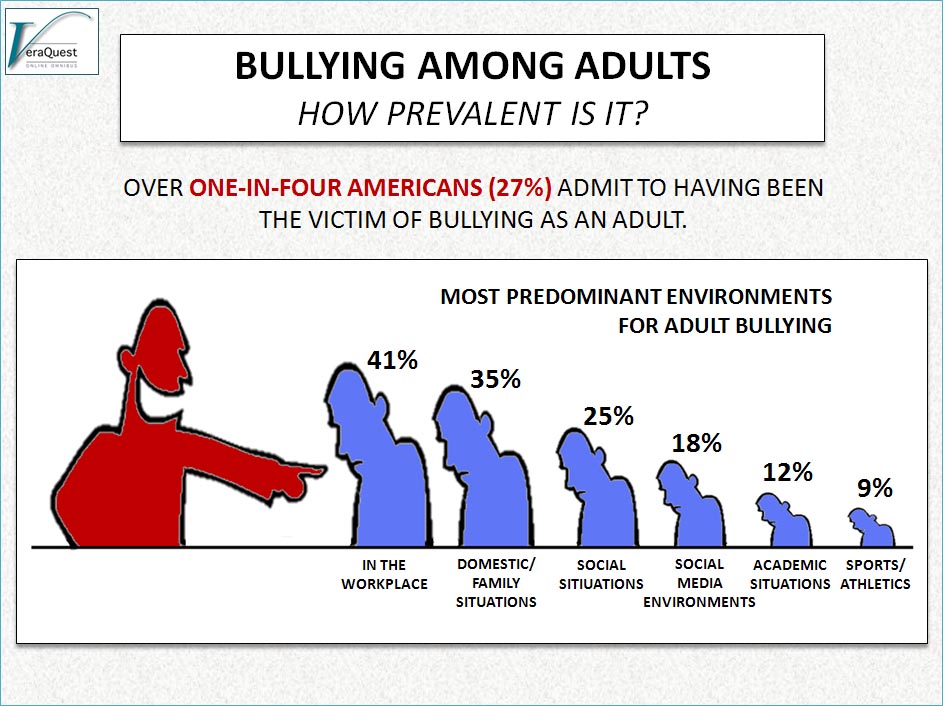I’ll admit, I’ve never really thought about bullying amongst adults. I hear “bullying” and I think about situations I witnessed and experienced during my childhood, or situations from when my kids were growing up. And let’s face it, bullying amongst kids has been a hot topic the past couple of years (and deservedly so). But adult bullying? Not exactly front page news. Well, until recently anyway.
With the “bridgegate” scandal in full swing, several media outlets have labeled Chris Christie a “bully”. And I think back to just a couple of months ago when Jonathan Martin of the Miami Dolphins abruptly left the team due to alleged on-going bullying/harassment by teammate Richie Incognito.
So I started wondering just how prevalent bullying really is among adults. We found out in a recent VeraQuest poll of 1,501 U.S. adults…
It turns out that over one-in-four Americans (27%) admit to having been the victim of bullying as an adult. The most predominant environments for adult bullying appear to be in the workplace (41%) and in domestic/family situations (35%). But social situations (25%), social media environments (18%), academic situations (12%), and sports/athletics (9%) are also mentioned as environments in which bullied adults have had these negative experiences.

There are a few interesting differences by age and gender:
- Americans 18-49 years of age are more likely to claim that they’ve been bullied as an adult (33%), compared to their 50+ year old counterparts (19%). It makes me wonder whether older adults are simply less likely to be bullied (perhaps out of respect, or maybe because they are less likely to be in some prominent bullying environments – e.g., in the workplace and on social media) and/or if adult bullying is more prevalent now than it was when they were younger adults. I suppose it’s also possible that older adults may be less likely to admit having been bullied as well.
- Women are also more likely to claim that they’ve been bullied as an adult, compared to men (30% vs. 24%, respectively). This difference is driven by women’s greater likelihood to be bullied in domestic/family situations – 12% of all women mention having been bullied in domestic/family situations versus 7% of men.
To stop the behavior, bullied adults most often indicate that they have walked away from the specific situation at-hand (46%), confronted the aggressor personally (39%), and/or reported it to an authority figure (21%). Actions taken less often include quitting the job/group/social media platform (14%), telling a friend/co-worker who then confronts the aggressor or reports it to an authority figure (12%), and reporting it to the police (11%). Only 6% of bullied adults claim to have taken no action at all.
Interestingly, most (84%) of those who confronted the aggressor report that the bullying at least got better (if not stopped completely). Conversely, two-thirds (67%) of those who did not confront the aggressor report that the bullying situation improved.
Have you personally witnessed or experienced adult bullying? How big of an issue do you feel adult bullying is in the workplace? How about online or on social media platforms?
Leave a Reply